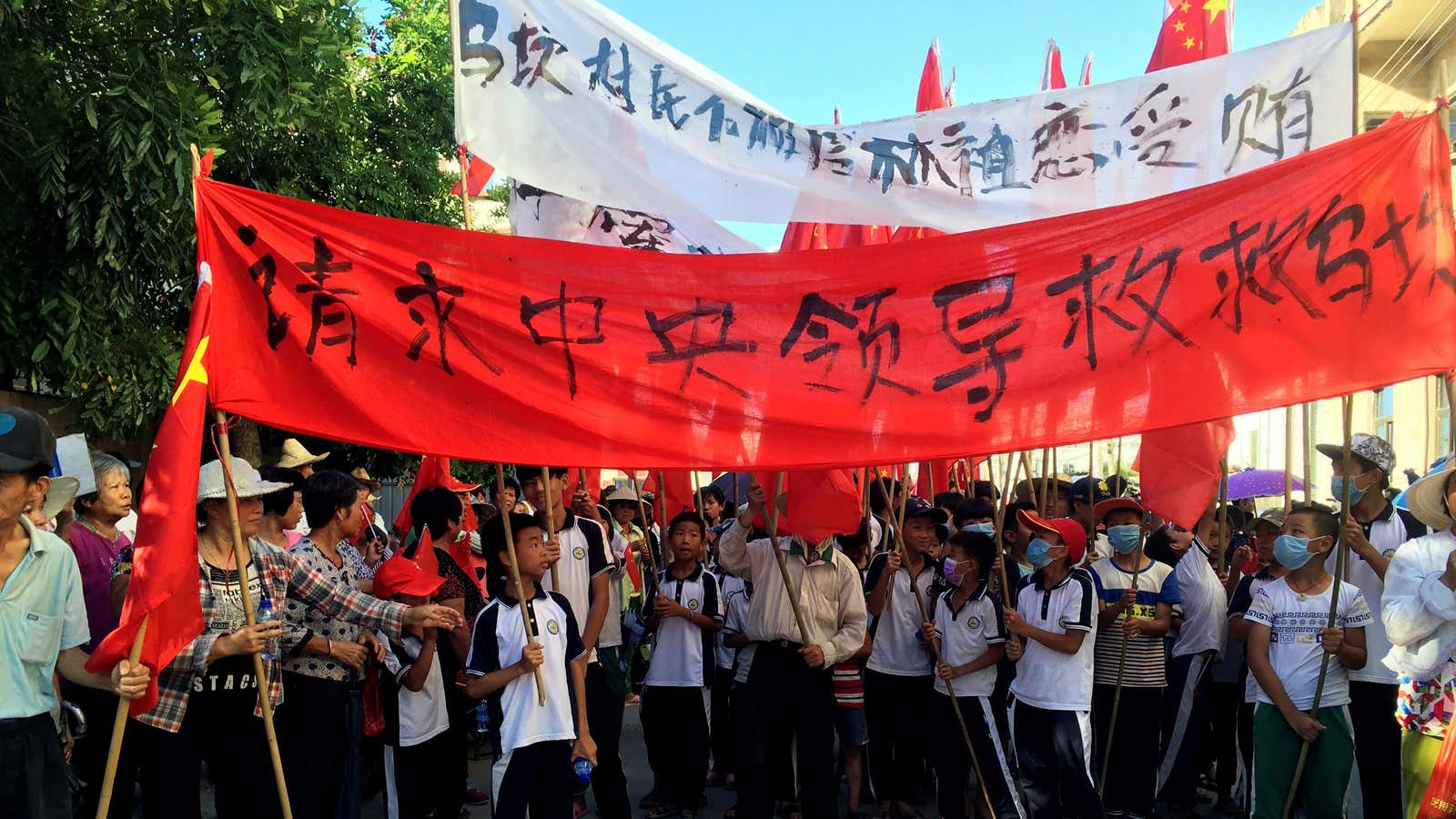This week, police carried out a vicious crackdown on demonstrators in the southern Chinese fishing village of Wukan, about 150 miles away from Hong Kong. After police fired rubber bullets and tear gas at villagers protesting over land rights disputes, information about the crackdown is being entirely blocked in mainland China. For a short while, foreign journalists became the only news source about the crackdown, but they are being expelled from the village after fetching $3,000 bounty per journalist.
Now Chinese citizens are being arrested for spreading reports about the crackdown.
Four Chinese citizens were punished “in varying degrees” for spreading “fake information” about the Wukan incident, the public security bureau in Lufeng city, which oversees Wukan, announced on Sept. 16 (link in Chinese). One Shenzhen resident who is originally from Wukan was put under “criminal detention” for re-posting “fake news” about a senior villager’s death on social networking site Weibo, Lufeng police said.
The purported death of 83-year-old Qian Xiuyin was first reported (link in Chinese) by Hong Kong-based digital publication HK01 on Sept. 13. But Chinese authorities claim she is being treated at a hospital and was not injured by rubber bullets from police. Qian’s granddaughter later told HK01 the local government hasn’t updated her on the whereabouts of her grandmother, and she does not know whether her grandmother is alive or dead.
Another Shenzhen resident, Huang Meijuan, was put under a 10-day administrative detention at a local police station for “spreading rumors” about the Wukan rebellion, Hong Kong newspaper Apple Daily reported (link in Chinese) on Sept. 16. Huang posted an article from the Voice of America on her WeChat Moments feed with the word “spread.” One friend commented under the post “Ghosts have entered the village,” a reference to Japanese invaders in China during the Second World War that apparently refers to the Chinese police. The screenshot of the post along with the comment was printed by police as an evidence against Huang, Apple Daily said, citing her husband’s posts online.
Unlike the Twitter-esque Weibo, posts on WeChat usually can only be viewed by people in private groups.
Lufeng police also announced that four villagers, who were deemed agitators in the unrest, had turned themselves in on Sept. 14 and 15. Earlier, the police arrested 13 people on the charges of “disturbing public space and transportation orders.”
